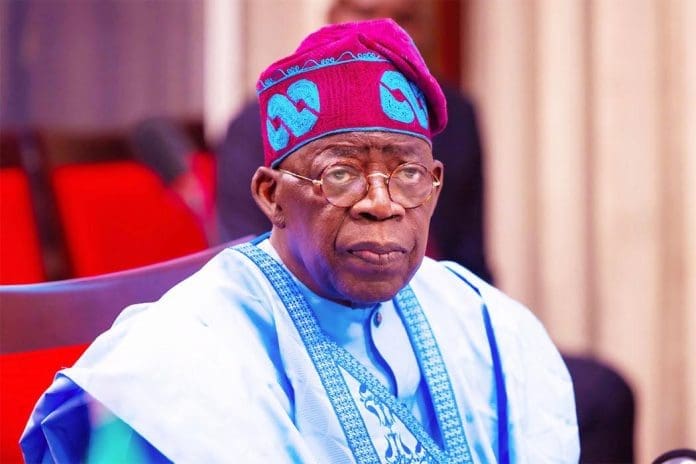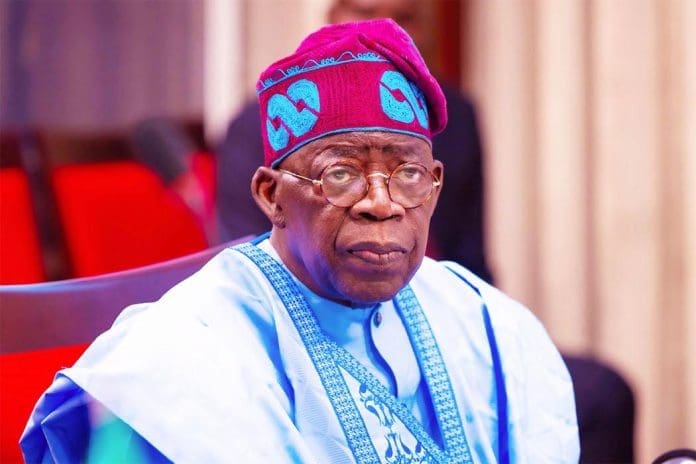
President Bola Tinubu on Thursday, November 6, assured Nigerians that his administration remains firmly committed to defeating terrorism across the country, despite ongoing security challenges and recent international pressure over religious violence.
Speaking at the Federal Executive Council (FEC) meeting held at the Council Chamber of the Presidential Villa in Abuja, the first since July, President Tinubu said his government would continue engaging the international community to strengthen national security while maintaining focus on economic transformation through the Renewed Hope Agenda.
“Despite the political headwinds and the fear of our people, we continue to engage our partners. We are engaging the world diplomatically, and we assure all of you that we will defeat terrorism,” the President declared shortly before the council entered a closed door session.
The remarks came days after United States President Donald Trump designated Nigeria as a Country of Particular Concern over alleged widespread killings of Christians and rising religious intolerance, threatening military action and aid cuts if the government fails to curb the violence. The Federal Government has described the designation as a misrepresentation of Nigeria’s evolving security situation.
President Tinubu’s statement represents his first public response to the US designation and military threat. He stressed that his administration is actively engaging global leaders to strengthen cooperation in counterterrorism, stability, and economic development.
The President’s comments followed an economic briefing by Minister of Finance and Coordinating Minister of the Economy, Wale Edun, who reported that Nigeria’s Gross Domestic Product (GDP) grew by 4.23 percent in the second quarter of 2025, according to official figures from the National Bureau of Statistics (NBS). This represents the strongest expansion in a decade outside the post COVID 19 rebound.
Edun explained that 13 sectors expanded by more than seven percent, up from nine in the previous quarter, providing evidence of broad based economic resilience. The industrial sector nearly doubled its growth from 3.72 percent to 7.45 percent, reflecting rising productivity and renewed investor interest in Africa’s largest economy.
President Tinubu highlighted the recent oversubscription of Nigeria’s 2.35 billion dollar Eurobond issuance as confirmation of international confidence in his economic reforms. The issuance attracted orders worth 13 billion dollars on Wednesday, representing an oversubscription rate of 453 percent or 10.65 billion dollars, despite political anxieties and Trump’s military threats.
“Despite the political headwinds and fears, our partners have continued to engage with confidence. The success of the 2.3 billion bond oversubscribed is the most at this stage,” President Tinubu said.
The Debt Management Office (DMO) successfully priced the two tranche Eurobond with 1.25 billion dollars allocated to the 10 year maturity expiring in 2036 and 1.10 billion dollars placed in the 20 year tranche maturing in 2046. The notes were priced at coupon yield rates of 8.6308 percent and 9.1297 percent respectively.
The transaction attracted participation from investors across the United Kingdom, North America, Europe, Asia, the Middle East, and Nigeria. The DMO described the broad participation as a strong vote of confidence in Nigeria’s macroeconomic reforms and prudent fiscal and monetary management.
Minister Edun expressed gratitude to the President and cabinet members for their support during his recent illness, stating that ongoing reforms, though challenging, were driven by a clear objective to build a competitive economy that creates jobs and lifts millions out of poverty.
The Finance Minister stressed the need to mobilize greater domestic and foreign investment to achieve the administration’s target of a one trillion dollar economy by 2030, noting that growth must reach seven percent annually by 2027 to significantly reduce poverty levels.
President Tinubu acknowledged the immense scale of security and economic challenges confronting the nation but reaffirmed his administration’s resolve to move forward with unity and purpose. “The task ahead is to move forward with clarity of purpose guided by the Renewed Hope Agenda to build a prosperous Nigeria,” he stated.
The President also presided over the swearing in of two new Ministers before the FEC meeting. He commended members of his cabinet for their commitment to implementing key government reforms despite prevailing political and security pressures.
Thursday’s FEC meeting came against a backdrop of diplomatic engagement with the Trump administration. Minister of Foreign Affairs Yusuf Tuggar said on Wednesday that Nigeria was explaining its constitutional protection of religious freedoms and efforts to combat extremist attacks to US officials.
The Eurobond proceeds will be used to finance the 2025 fiscal deficit and support other government financing needs, including refinancing 1.1 billion dollars in maturing Eurobonds due November 21, 2025. Nigeria mandated Chapel Hill Denham, Citigroup, Goldman Sachs, J.P. Morgan, and Standard Chartered Bank as joint bookrunners, while FSDH Merchant Bank Limited acted as financial adviser.
The successful capital market access demonstrates resilience in Nigeria’s economic reform trajectory despite geopolitical tensions. Foreign reserves have risen above 43 billion dollars, the highest level since 2019, while inflation has moderated to 18.02 percent after six consecutive months of decline, according to recent economic data.
President Tinubu emphasized that terrorism would be crushed and peace restored nationwide, assuring Nigerians that the task ahead involves building a prosperous, inclusive, and resilient nation through the Renewed Hope Agenda despite current challenges.
